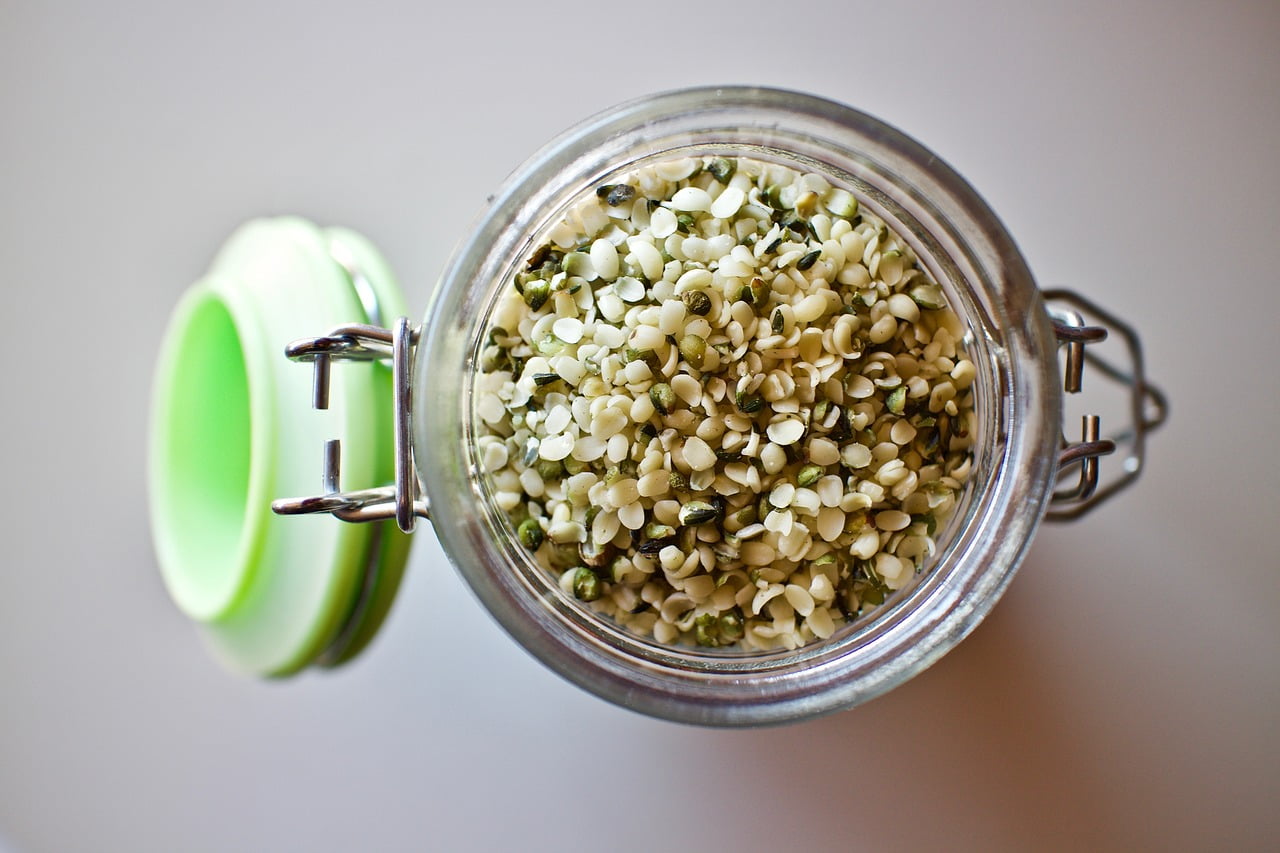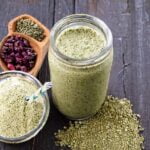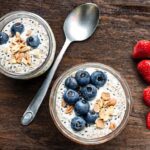
In recent years, there has been a growing interest in plant-based protein sources due to their numerous health benefits and environmental sustainability. Among these options, hemp seeds have gained popularity as a nutrient-dense superfood. Hemp seeds are not only rich in healthy fats and fiber but also provide an impressive amount of protein.
This post explores the nutritional profile of hemp seeds, highlighting their protein content, amino acid profile, and potential health benefits.
Nutritional Profile of Hemp Seeds
Hemp seeds are the seeds of the Cannabis sativa plant and are often referred to as hemp hearts. They are small, nutty-flavored seeds with a soft texture.
When it comes to protein content, hemp seeds are a remarkable source. Approximately 25% of their total calories come from protein, making them one of the most protein-rich plant-based foods available. A three-tablespoon serving (30 grams) of hemp seeds contains around 9.5 grams of protein, which is comparable to the protein content found in an egg.
Amino Acid Composition
Hemp seeds stand out not only for their protein content but also for their impressive amino acid profile. Amino acids are the building blocks of protein, and our bodies require a variety of them for optimal health. Hemp seeds are considered a complete protein source, as they contain all nine essential amino acids that the body cannot produce on its own.
Furthermore, hemp seeds are particularly rich in arginine, an amino acid known for its role in nitric oxide production, which helps regulate blood vessel function and supports cardiovascular health. Hemp seeds also provide an abundance of gamma-linolenic acid (GLA), an omega-6 fatty acid that exhibits anti-inflammatory properties.
Health Benefits of Hemp Seed Protein
The protein from hemp seeds provides many different benefits, including:
Muscle Growth and Repair: Protein is essential for building and repairing tissues, making it crucial for muscle growth. Hemp seed protein contains branched-chain amino acids (BCAAs), including leucine, isoleucine, and valine, which are particularly beneficial for muscle synthesis and recovery.
Digestive Health: Hemp seeds are an excellent source of dietary fiber, which aids in maintaining a healthy digestive system. Fiber promotes regular bowel movements, helps prevent constipation, and supports the growth of beneficial gut bacteria.
Heart Health: Hemp seeds’ impressive amino acid composition, including arginine and GLA, contributes to cardiovascular health. Arginine helps relax blood vessels, improving blood flow, and reducing the risk of heart disease. GLA has been associated with lower inflammation and improved heart health markers.
Weight Management: Protein is known to promote feelings of fullness and reduce appetite, making it beneficial for weight management. Hemp seed protein, with its high protein content and fiber, can help control hunger and support healthy weight loss or maintenance.
Plant-Based Alternative: Hemp seeds offer a plant-based protein option for individuals following vegetarian, vegan, or plant-based diets. Incorporating hemp seeds into meals can help meet protein requirements without relying solely on animal sources.
Incorporating Hemp Seeds Into Your Diet
Including hemp seeds in your daily diet is a simple and versatile way to boost your protein intake. Here are some ideas for incorporating hemp seeds:
Sprinkle over Salads: Add a nutty flavor and a protein boost to your salads by sprinkling hemp seeds over leafy greens or mixed salads.
Blend into Smoothies: Add a tablespoon of hemp seeds to your favorite smoothie recipe for an extra protein kick.
Hemp Seeds Protein Shake: You can use hemp seeds to make this Hemp Seeds Protein Shake.
Baking and Cooking: Incorporate hemp seeds into homemade granola bars, muffins, or bread for added texture and protein content.
Salad Dressings: Use hemp seed oil, which is derived from hemp seeds, as a base for homemade salad dressings. It adds a nutty flavor and provides a dose of healthy fats and protein.
Topping for Yogurt or Oatmeal: Sprinkle hemp seeds on top of yogurt or oatmeal for added crunch and a protein boost to start your day.
Energy Bars or Balls: Make homemade energy bars or balls by combining hemp seeds with other nutritious ingredients like nuts, dried fruits, and sweeteners such as honey or dates.
Nut-Free Alternative: For individuals with nut allergies, hemp seeds can be an excellent alternative to nuts in recipes like pesto, nut-free spreads, or trail mix.
Protein-Packed Smoothie Bowls: Create a nourishing and protein-rich breakfast or snack by blending frozen fruits, a plant-based milk of your choice, and a tablespoon of hemp seeds. Pour the smoothie into a bowl and top it with additional hemp seeds, fruits, and granola for added texture.
Final Thoughts
Hemp seeds are a nutritional powerhouse and an excellent source of protein, offering a plant-based alternative for meeting protein needs. With their impressive amino acid profile, including all nine essential amino acids, they provide the body with the building blocks required for optimal health and functioning.
Incorporating hemp seeds into your diet is easy and versatile, allowing you to enjoy their nutty flavor and reap their numerous health benefits. Whether sprinkled over salads, blended into smoothies, or added to baked goods, hemp seeds can be a valuable addition to a balanced and protein-rich diet.
Lance has been passionate about the plant-based diet and we have been following a whole food plant-based diet for over 5 years. We focus on health, natural healing, weight management, animal rights, and the health of the planet and environment by focusing on whole plant-based foods and sustainable practices.
Learn more at the About Me page and follow on social media at the links below.


